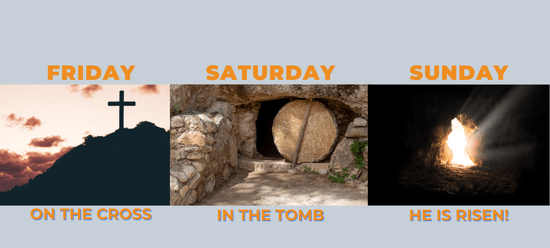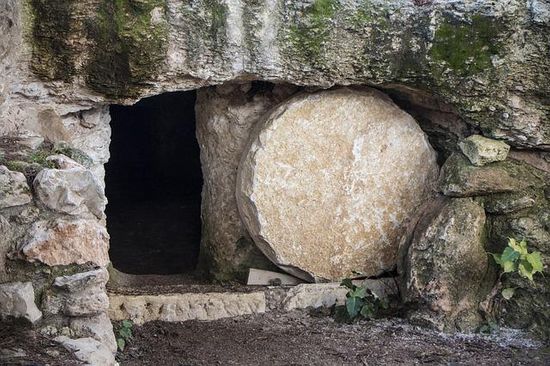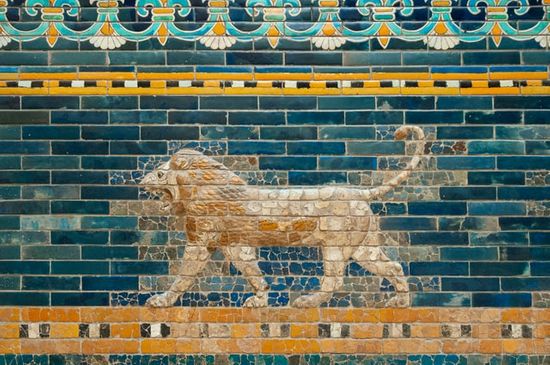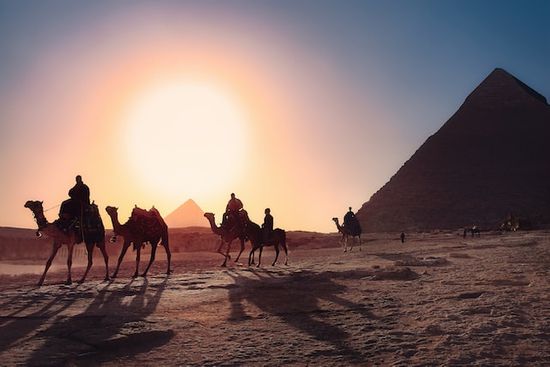Why Does the Sabbath Begin and End at Sundown?
It’s because Adventists believe the Sabbath starts at sundown on Friday and goes until sundown on Saturday. They base this practice on Scriptural guidance that goes all the way back to Creation.
To learn more about why we keep the Sabbath this way, we’ll look at:
- The timing of Sabbath at Creation
- Sabbath started and ended at sundown throughout the Bible
- The Jews keep the Sabbath that way even today
- Seventh-day Adventists have been keeping it between sunsets since 1855
- The biblical way of keeping the Sabbath is still applicable to us today
Let’s begin with the origins of the Sabbath and its observance.
The timing of Sabbath at Creation

The Bible introduces the Sabbath at the end of the Creation week after God spent six literal days creating all “the heavens and the earth” and everything in it (Genesis 2:1, NKJV). And just like the six days before, this day began in the evening.
Here’s why:
Each day of Creation was a separate period divided into two parts—an evening and a morning. Each evening was a new day, which continued through the morning until the following evening when another day began (Genesis 1:1, 5, 8, 13, 19, 23, 31).
The Bible concludes the sixth day by saying, “The evening and the morning were the sixth day” (Genesis 1:31, NKJV).
So when the Sabbath shows up in Genesis 2:2, it picks up the same order of counting a day. It started in the evening, progressed through the morning, and continued until the next day began at sunset the following evening.
God provided a full 24 hours for His children to spend time with Him and enjoy what He had made for them.
Sabbath started and ended at sundown throughout the Bible
People continued to start Sabbath and end it at sundown throughout the history of the Scriptures. We find numerous instances of God’s people keeping it this way in the Old Testament and the New Testament.
Let’s look at some examples:
Jesus’ followers observed the Sabbath from Friday evening
The events surrounding Jesus’ death and burial show that Sabbath started and ended in the evening for His followers.

Matthew 27:45–56 tells us that Jesus died at around 3:00 p.m. And after His death was confirmed, two of His secret disciples—Joseph of Arimathea and Nicodemus—asked to bury his body that evening.
They buried Him in a nearby tomb because it was “the preparation day and the Sabbath drew near” (Luke 23:54; John 19:31–42, NKJV).
They wanted to be careful not to start burial activities during the Sabbath hours.
Also, women who had followed Jesus from Galilee wanted to embalm His body with spices. But since the Sabbath was about to begin, they only went to see where He was buried. Then “they rested on the Sabbath according to the commandment” (Luke 23:56, NKJV).
They waited until “the Sabbath was past” before returning to the tomb early in the morning on the first day of the week (Mark 16:6, NKJV).

Today, we annually celebrate Easter on a Sunday to remember Jesus’ resurrection. This resurrection day is referred to as the first day of the week.
And we have Good Friday to mark when Jesus died. That’s the preparation day referred to here.
So we can safely conclude that the day between the two was Saturday.
This means that even in the New Testament, Jesus’ disciples knew that the Sabbath begins at sundown on Friday and runs to sundown on Saturday.
Annual celebrations in the Bible began in the evening
In Leviticus 23, the Israelites received instructions on how to observe various yearly feasts. The days of these feasts also started in the evening.
The most solemn of these feasts was the Day of Atonement—also known as “Yom Kippur” in Hebrew (Leviticus 23:26–32). It was held on the tenth day of the seventh month and considered one of the Jewish high days.
And though such days didn’t always fall on the seventh day of the week, they were often referred to as yearly or celebratory “sabbaths.” Some, like Yom Kippur, had specific directions not to work because it was a holy day of solemnity, focus, and contemplative rest.

Even so, these events differed from the weekly Sabbath of the fourth commandment.
But the one thing they had in common was that they were all observed from evening to evening. For the Day of Atonement, God instructed His people to keep it from the evening of the ninth day of the seventh month to the evening of the tenth (Leviticus 23:32).
From this, we see a major nation of people—Israel—keeping track of days from evening to evening.
Nehemiah prepared for the start of the Sabbath just before it became dark
When the Israelites returned to Jerusalem after the Babylonian captivity, Nehemiah led them to reform how they observed the Sabbath. He required them to stop trading before sunset on Friday evening.
The problem was that their neighboring countries were trying to do business with them on Sabbath (Nehemiah 13:15–16). And this business often meant significant bartering. Likely, they weren’t simple transactions, and they probably were trading luxuries rather than necessities.
To ensure this didn’t disrupt the Sabbath, Nehemiah set the following in motion:
“Just as it became dark at the gates of Jerusalem before the Sabbath, [he] ordered that the doors be shut, and that they were not to open them until after the Sabbath. Then [he] stationed some of [his] servants at the gates so that no load would enter on the Sabbath day” (Nehemiah 13:19–20, NKJV, emphasis added).
This passage demonstrates how seriously God’s people took the Sabbath’s meaning and timing.
Even today, Jews begin the Sabbath and all feasts in the evening
Much of the Bible is in the context of Jewish culture. And even today, these cultural traditions are deeply rooted in biblical practices, including the start of the Sabbath and other feasts in the evening rather than the morning.
The Jews observe Sabbath from evening to evening
As we’ve seen in Bible times, the Israelites observed the Sabbath from Friday evening to Saturday evening. The Jewish people have kept this tradition integral to their community and family life.
They trace it from the Creation account in Genesis 2:2–3, as well as the Ten Commandments in Exodus 20:8–11 and Deuteronomy 5:12–15.
And as we’ve seen in the book of Nehemiah, they still kept it from evening to evening during their recorded biblical history.

After the Babylonian exile, the Jews became more strict in their observance of God’s laws in the Torah. This was an effort on their part to uphold the Mosaic laws.
While they anticipated the coming of Yahshua (the Messiah), they were careful to obey God’s laws so they could avoid another captivity.
Their religious leaders expounded on the laws and formed what became known as rabbinical laws. These are laws that they followed during the time of Jesus and which are largely followed by modern Jews today.
The Sabbath was also expounded upon, and details of its observance were outlined. This included its observance spanning from sundown to sundown.
Today, Jews celebrate the Sabbath—known as Shabbat in Hebrew or Shabbos in Yiddish—from Friday night at sunset to Saturday night at sunset. In fact, an observant Jew will begin it even a little before sunset.
This is because they consider it not only a sacred day but also a delightful day worth looking forward to.
They begin it on Friday evening, lighting candles and enjoying a special Shabbat meal for dinner. They go to the synagogues on Saturday for prayer and instruction from the Torah. And they greet each other with “Shabbat Shalom,” which translates to “Sabbath peace.”
Then when Saturday night comes, they hold a ceremony called “Havdalah” that separates Shabbat from the rest of the week.
Feast days in the Bible went from sundown to sundown

As we saw in Leviticus 23, the Israelites were commanded to observe the Day of Atonement from evening to evening. In fact, all their holidays started in the evening. And today, Jews still do the same.
Let’s look at one of these feasts: the Passover, or Pesach in Hebrew.
We find the Passover in Exodus 12.
It was meant to celebrate freedom and family in remembrance of the Israelite Exodus from Egypt.
In Leviticus 23:5, we read that it began at twilight on the 14th day of the first month. According to the dictionary, twilight is “the period of time at the end of the day after the sun has gone down.” It’s the time just before nightfall.
Even today, Jews begin the Passover in the evening, just before the night begins. Those who are Orthodox especially maintain a strict observance of this practice.
Seventh-day Adventists observe the Sabbath from sundown to sundown
Seventh-day Adventists are Christians who observe the biblical Sabbath. They keep it from sunset Friday to sunset Saturday, just like it’s outlined in the Bible.
They trace its origins to the Creation week. And they find evidence for keeping it from sundown to sundown in the Bible.
But they didn’t always know this truth. They learned it from the Seventh-day Baptists.
Here’s their story.1
After the time of Jesus and the apostles, the early Christian church kept the weekly seventh-day Sabbath.
But through the years, the Sabbath became mixed up with other cultural traditions. Eventually, Christians in most parts of the known world kept Sunday instead of Saturday as the day of worship. They called Sunday “the Lord’s Day.”
Additionally, some church systems started observing the day of worship from midnight to midnight. But in many places, people maintained the evening to evening practice.
Finally, during the Reformation in the 16th century, many groups started studying the Bible for themselves. Some, like the Seventh-day Baptists, discovered that the true Sabbath was supposed to be kept on Saturday rather than Sunday.
So they started observing it.

But when they read that it was to be kept “from evening to evening,” they interpreted it to mean from 6:00 p.m. to 6:00 p.m. (Perhaps this was just an easy way to standardize the practice.)
But this idea of Saturday instead of Sunday didn’t go well with the established church in England. So the Seventh-day Baptists were forced to leave England due to persecution. They took the journey across the Atlantic and ended up in America.
Once in America, they taught the truths to other Sunday-keeping Baptists and eventually formed a congregation.
Then in the early 1840s, a group of people began proclaiming the literal and imminent second coming of Jesus. Their leader was William Miller, so they were referred to as Millerites. They expected Jesus to come in the fall of 1844 and experienced the Great Disappointment when He didn’t.
Up to this point, the Millerites kept Sunday as their day of rest.
But after the Great Disappointment, an influential Millerite named Joseph Bates learned about the Sabbath truth. He shared it with other key Millerites like James and Ellen White. Since they were now studying Scripture on their own instead of under the leadership of William Miller, they became known as “Adventists” since they were primary studying Christ’s second Advent.
As the Adventists became convicted of the seventh-day Sabbath Bates shared with them, they became “Sabbatarian Adventists.” Later they organized into a Christian denomination, and the Adventist Church was born.
Since they learned about the Sabbath from the Seventh-day Baptists, they continued to keep it from 6:00 p.m. on Friday until 6:00 p.m. on Saturday.
But by 1855, they realized that the Bible didn’t specify the time. It just said, “from evening to evening” (Leviticus 23:32, NKJV).
And actually, Mark 1:32 clarifies that “evening” means “when the sun ha[s] set” (NKJV).
So they settled on the conclusion that evening indicated sundown.
And this was significant because, based on time zone and season, sunset can come before or after 6:00 p.m. So the Sabbath will not always begin at 6:00 p.m. It will vary.
After much study, John Nevins Andrews wrote a thorough article on this subject, and it was circulated among Adventists in their regular publications. Based on the biblical evidence, it was clear that the Sabbath begins at sunset.
Finally, they were united in its timing.
To this day, Seventh-day Adventists around the world observe the Sabbath from sundown to sundown.
The biblical way of keeping the Sabbath is still applicable to us today

The practice of observing the Sabbath from sunset to sunset is rooted in the Bible. All the way from Creation, it was kept this way.
And for many contemporary Jews and Adventists, the Sabbath begins and ends at sunset.
That’s because the Bible provides instruction to God’s children that was applicable to a specific time and culture yet is still relevant today.
God cares about even the smallest details in our relationship with Him. That’s why He’s given us the Sabbath day of rest as a gift. From sundown to sundown, He wants to commune with us just as He did in the Garden of Eden with Adam and Eve.
Would you like to try celebrating a Sabbath yourself?
Set aside next Friday evening to Saturday evening as a time for you and God. You could make it a time of prayer, reading your Bible, and enjoying nature.
Or find your local Adventist Church to celebrate it with other Sabbath-keepers.
- Strand, Kenneth, The Sabbath in Scripture and History (Review and Herald Publishing Association, Washington DC, 2012), pp. 135–255. [↵]
Questions about Adventists? Ask here!
Find answers to your questions about Seventh-day Adventists
More Answers
Why Many Seventh-day Adventists Choose a Vegetarian Diet
Why Many Seventh-day Adventists Choose a Vegetarian Diet?You may have an Adventist friend who is vegetarian, or maybe you’re attending a Seventh-day Adventist Church for the first time and notice the potluck doesn’t have any meat. This isn’t unusual in Adventism. In...
The Health Benefits of Fresh Air You Should Know About
The Health Benefits of Fresh Air You Should Know About“When you can’t breathe, nothing else matters,” the American Lung Association tells us. And while that’s true, the kind of air you’re breathing will determine the health benefits you experience. Breathing fresh...
What Do Seventh-day Adventists Choose to Eat?
What Do Seventh-day Adventists Choose to Eat?Food blogs overwhelm the internet; food fads are all the rage; and copycat and healthy versions of food are the subject of many a get-together. Eating—and eating the best way—is a big deal. And everybody has a different...
10 Incredible Ways Sunlight Can Improve Your Health
10 Incredible Ways Sunlight Can Improve Your HealthAre you concerned about sunlight’s negative effects? You might be the one who lathers on the sunscreen and covers up when you go outside. Or maybe you avoid being outside as much as possible. You might be surprised,...
Why Is Water So Important?
Why Is Water So Important?We all know that water is a substance we can’t live without. It quenches our thirst and keeps us hydrated on the inside. And it’s necessary for hygiene and cleansing on the outside too. But did you know that the cleansing properties of water...
Ellen White’s Writings and the Adventist Health Message
Seventh-day Adventists are known for their emphasis on healthy living. And Ellen G. White was a significant influence in the development of this priority and practice among Adventists.
Health Clinics
Ellen White and Adventist Healthcare—Ahead of Their Time Medical care in the mid-1800s was primitive, to say the least. Basic concepts we take for granted—such as proper handwashing or recognizing the dangers of bloodletting—were nonexistent. And doctors often had...
What Did Ellen White Teach about Vegetarianism?
What Did Ellen White Teach about Vegetarianism?One thing you might have heard about Seventh-day Adventists is their emphasis on a vegetarian lifestyle. If you’re wondering why that is, it goes back to our church’s humble beginnings: As Adventists studied the Bible,...
How Ellen White’s Teachings Can Improve Your Health
How Ellen White’s Teachings Can Improve Your Health Healthcare in the nineteenth century was said to leave “more disease than it took away” with its use of bloodletting and “medicines” like mercury and arsenic.1 As people questioned these methods, new approaches...
Change Your Perspective on Life with These 5 Mindsets
5 Biblical Mindsets to Change Your Life for the Better Sometimes, life is just plain hard. There’s no way around it. So would thinking about things differently really change anything? Our perspective on life, and everything it throws at us, affects more than we’re...
Bible Promises for When You’re Worried or Fearful
Bible Promises for When You’re Worried or Fearful The Bible is full of beautiful promises that can comfort us in a variety of situations. They can give us hope when we are hopeless, make us feel grateful for God’s love, and comfort us when we’re grieving or suffering....
12 Practical Ways to Overcome Worry
12 Practical Ways to Overcome Worry DISCLAIMER: This content is for informational purposes only. It does not constitute any professional medical advice and is not intended as a substitute for professional mental health therapy. It’s easy to get stuck in a cycle of...
How the Bible Talks About Worry, Fear, and Anxiety
How the Bible Talks About Worry, Fear, and Anxiety Worry and fear are the ingredients of anxiety. It’s easy to see how the world isn’t perfect—and the anticipation of a bad event or experience (that may or may not even happen) can end up draining the peace and...
How to Calm Anxious Thoughts, Using the Bible
How to Calm Anxious Thoughts, Using the Bible You were expecting a phone call from your daughter half an hour ago, and she still hasn’t called. She’s also not answering your calls. You feel your heart thumping as your thoughts race: What if she’s been in a car...
What You Should Know About the Adventist Health Studies
What You Should Know About the Adventist Health StudiesYou may have heard that Seventh-day Adventists care about health. But what you may not know is that Adventists have been the subjects of long-term research into lifestyle and health. Since 1958, researchers from...
Benefits of Sunlight
Yes, There Are Health Benefits of SunlightDespite the bad reputation it’s gotten, sunlight is generally associated with positivity, as shown by songs like “You Are My Sunshine,” or phrases that refer to delightful people as having a “sunny disposition.” There’s a...
Why Your Body Needs Rest for Optimal Health
Why Your Body Needs Rest for Optimal HealthStruggling to think straight? Wondering why you can’t remember that important tidbit you heard earlier today? Feeling like your emotions are about to explode? These are just some of the symptoms that can reveal your need for...
The Seventh-day Adventist Diet: One of Our Key Longevity Secrets
The Seventh-day Adventist Diet: One of Our Key Longevity SecretsOats, avocados, lentils, tofu—probably not what you first think of in a standard American diet. But if you show up at the home of an Adventist, chances are you may be served one of these staples. Out of a...
Why You Need Fresh Air
Why You Need Fresh Air“When you can’t breathe, nothing else matters,” the American Lung Association tells us. We couldn’t agree more! Breathing in clean air is an essential part of caring for our bodies, which God has given us. Together with other health principles,...
Sabbath Meal
Everything You Need to Know About Sabbath MealsFor Seventh-day Adventists, sharing a Sabbath meal with friends and family is one of the most special and memorable parts of the Sabbath. That’s why we want to share with you all about Sabbath meals and why they’re such a...
Adventists and Healthy Living
Adventists and Healthy LivingWhat’s the Adventist “Health Message” All About? One thing Seventh-day Adventists are known for is their emphasis on living healthy lives. Since our bodies are living temples of the Holy Spirit (1 Corinthians 6:19, 20), we strive to stay...
Water’s Importance—Physical Benefits and Spiritual Applications
Water’s Importance—Physical Benefits and Spiritual Applications We all know that water is a substance we can’t live without. Not only does it quench our thirst and keep us hydrated from the inside, but it’s necessary for hygiene and cleansing on the outside as well....
How Important is a “Day of Rest?”
How Important is a “Day of Rest?” Why God Created a Day for Downtime by Martin Casper Do you ever experience the feeling of complete overload? Do you feel like the only way you can get ahead is by slamming it 24/7? I hear these types of comments more and more...
7 Reasons Why a Day of Rest is Important
7 Reasons Why a Day of Rest is ImportantWe live in a fast-paced world. It seems as if success is measured in how much you can do in a short amount of time. (Extra points for the service or product that is available 24/7). The idea that we will be more successful if we...
How do Adventists choose what to eat?
How do Adventists choose what to eat?Every day, parents go through the ritual of getting their kids to eat what is healthy and good while trying to steer them away from what can hinder the growth of their developing bodies. Nutritionists work with their clients to...
How Can I Have a Better Marriage?
Is it possible to have a happy marriage?
Why are many Adventists Vegetarian?
Why are many Adventists Vegetarian?The diet intended for man is outlined in Genesis 1:29, “And God said, ‘See, I have given you every herb that yields seed which is on the face of all the earth, and every tree whose fruit yields seed; to you it shall be for food.’”...
Didn’t find your answer? Ask us!
We understand your concern of having questions but not knowing who to ask—we’ve felt it ourselves. When you’re ready to learn more about Adventists, send us a question! We know a thing or two about Adventists.




















